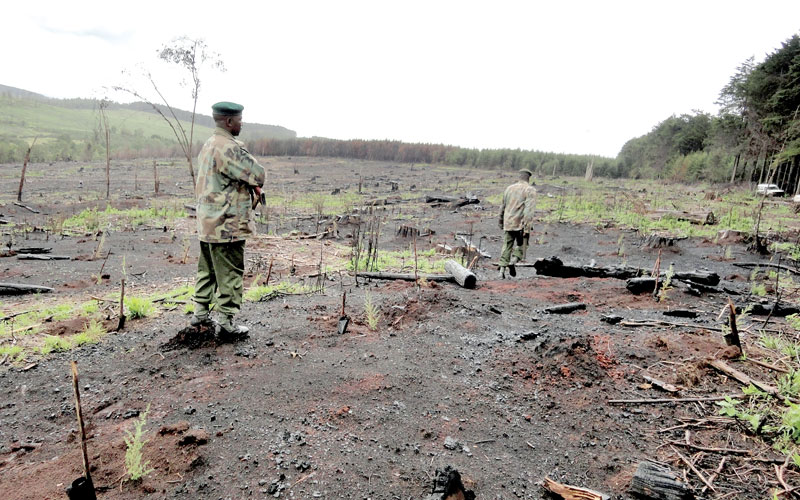Nema rubbishes move to reverse plastic bags ban

No amount of arm-twisting will break the country’s resolve to enforce plastic control measures, the National Environment Management Authority (Nema) has maintained.
A day after an American institution tried to prevail upon Kenya to go slow on the implementation of the ban on plastics, Mamo Boru Mamo, Nema director general said the amount of resources the country has invested in the journey to eliminate plastic from the country’s environment is huge.
The American Chemistry Council (ACC) recommended Kenya make illegal the imposition of domestic restrictions on production or consumption of chemicals and plastic.
But Mamo said would be impossible.
“Evidently, the country’s cities are cleaner now with the limitation of plastic production. As a country we will not allow it.
We have invested a lot in ensuring that as a country we are among the best in the region to have the stringiest plastic control measures,” he told People Daily after it appeared that the American institution could be anchoring it’s calls on the recent Kenya-US Free Trade Area agreement.
However, Mamo argued a team of lawyers who reported back said there was no agreement when that matter arose in the FTA talks represented the agency.
“We had our lawyers there in those negotiations, and they told that they have not agreed on anything and they will not all that.
Let’s not allow people to come and derail our work,” he added.
The Nema boss said already 17 countries have visited Kenya to benchmark on how the country successfully implemented the plastic ban.
“The President recently made an announcement that within all conservation areas there will be no carrying of plastic bottles there. Those are great things and we will not allow anybody to derail us,” Mamo added.
Following President Uhuru Kenyatta’s directive on last year’s World Environment Day, the ban which came into effect on June 5 in national parks; beaches, forests and conservation areas, which means visitors will no longer be able to carry plastic water bottles, cups, disposable plates, cutlery, or straws into protected areas.
Nationwide ban
This move follows Kenya’s ground-breaking step of a nationwide ban on single-use plastic bags in 2017.
On Tuesday it appeared that Kenya may be forced to rescind its ban on single use plastic bags after the ACC recommended that the country prohibit imposition of domestic limits on production or consumption of chemicals and plastic.
The ACC, giving recommendations to the US International Commission on the ongoing US-Kenya Trade Agreement, noted that the prohibition should extend to restrictions on cross-boundary trade of materials and feedstocks.
“We anticipate that Kenya could serve in the future as a hub for supplying US-made chemicals and plastics to other markets in Africa through this trade agreement,” Ed Brzytwa, American Chemistry Council Director for International Trade said in a letter to the Commission on June 10.
“Kenya is growing its ground transportation network of railways and roads, has a port that meets international standards in Mombasa on the Indian Ocean, and boasts three international airports,” Brzytwa added.
Early this year, US President Donald Trump met President Uhuru Kenyatta at the White House and announced the USA plans to initiate trade agreement negotiations with the Republic of Kenya.
In June, the United Nations Environment Programme (Unep) commended Kenya for banning single-use plastics in its parks and protected areas.
“By banning single-use plastics in its parks and protected areas, Kenya joins the rest of the world in setting the agenda for the sustainable management of waste in conformity with this year’s World Environment Day theme,” said Juliette Biao, Africa region director at UNEP.
Biao said that coming only three years Kenya introduced one of the world’s most efficient laws on single-use plastic bags, this latest measure provides the necessary momentum needed for wildlife and biodiversity conservation.














